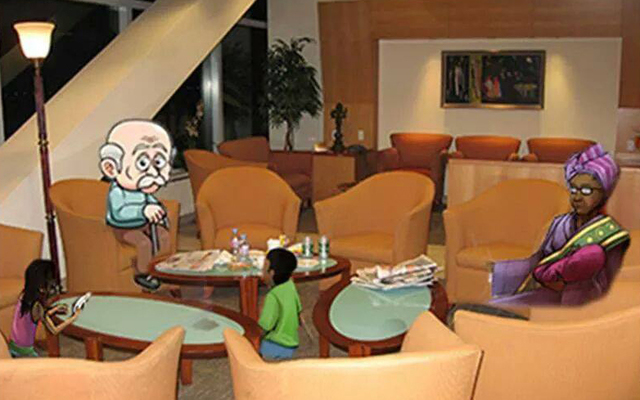By Tinashe Mushakavanhu
PERHAPS the biggest lie Zimbabwe experienced in 2013 is the emergence of Baba and Amai Jukwa. The couple who pretended to the world that they slept in different rooms but slept on different sides of the same bed, it now appears, they both conveniently sowed seeds of discord in the Zimbabwean political landscape.

By committing to expose secrets within ZANU PF, Baba Jukwa claimed to be revealing the party’s systematic disregard for individual freedom. He was seen as an epitome of the fight by the individual against the state. What’s astonishing about the husband’s ascent to heroism is the breadth of his followership on Facebook. In a short space of time Baba Jukwa became the most popular social media page in Zimbabwean terms with more than 400,000 followers.
His embrace especially by young Zimbabweans was not surprising. The majority of them known as the ‘born-free’ grew under the ominous shadows of ZANU PF and have not known any “freedom” other than dictates of a single party. Okot p’Bitek once said, “the most striking and frightening characteristic of all African governments is this: that without exception, all of them are dictatorships…”
Indeed, there is much truth in the saying that people get the governments they deserve. And just as a man gets the wife he deserves, and a congregation the priest it deserves, a nation gets the leaders and the constitution it deserves. But effusions of praise for the leaker were also to be found throughout in a faction ridden ZANU PF. For several months prior to the July 31 election, some sections of the local and international media came to rely on Baba Jukwa as a prize source on the internal dynamics in ZANU PF and the maligned succession issue, which, if not well treated will spell a spectacular death for the ‘revolutionary’ party.
Has Baba Jukwa done this country a great service? I remain skeptical. His/their real motive is still not known and we wait for the courts to awaken us on the true nature of Baba Jukwa’s character, intentions and motive. So far, the adulatory treatment the leaker received closely mirrors his own self-presentation. He never presented any significant caches of evidence but fed the country with speculations and rumours. Baba Jukwa entertained a global audience who have so long have been fascinated by President Robert Mugabe and his comrades. It is no exaggeration but what Baba Jukwa has revealed to the world is at odds with the flattering coverage the leaker has received, and goes beyond personal eccentricities or dubious activities in the service of noble goals. They reveal an agenda that even the leakers’ most dedicated admirers should question.
Baba Jukwa holds a crazy-quilt assortment of views, some of them blatantly contradictory and half baked. But from an incoherent swirl of ideas, a common outlook emerges. The outlook is neither a clear-cut doctrine nor a philosophy, but something closer to a political impulse. Towards the run up to last year’s general election Baba Jukwa was seen as a“truth-teller” intent on promoting democracy and protecting Zimbabwe from an authoritarian ZANU PF. If indeed, Baba Jukwa was a true democrat, he should have made himself known like what real leakers such as Edward Snowden and Julian Assange have done. It is always difficult to know the intentions of a person or collective that hides behind the cloak of anonymity.
The site’s early scoops exposed a random mélange of material, including high level meetings in the secretive ZANU PF politburo, mentioned and shamed corrupt government ministers and officials, as well as put on the spotlight the twilight of President Robert Mugabe’s leadership. Baba Jukwa made Zimbabweans believe he was unleashing a torrent of “classified information” with the clear intent of showing that ZANU PF had spun out of control; thereby destroying the party’s mythology that it was invincible and chosen by God. He was sharing the animating belief that Zimbabwe is being ruined and plundered by the hegemonic ambitions of a small group of networked individuals.
And then, just as suddenly, the whirlwind veered off path. Baba Jukwa’s bright light seemed to be fading after the whipping of the opposition at the 2013 pebliscite. It became an inconsistent, erratic page with incoherent rants. The Baba Jukwa page has since been pulled down from Facebook. Baba Jukwa easily became a political character Zimbabwe loved to hate, scaring and exciting people at the same time. He not only dominated the news agenda, he sometimes owned it. He was a political Frankenstein monster who was bludgeoning ZANU PF from within, so we were made to believe. His signature line “Asijiki”, became a common expression of defiance. It is an evocative Zulu phrase used in ‘youth politics’ during apartheid in South Africa, which means literally “we do not turn back”.
Though it was Baba Jukwa who hogged the limelight, his wife, Amai Jukwa was known mostly as a polemical weekly commentator in the daily state paper. More often than not, instead of dissecting issues, she mostly busied herself with vitriol against individuals perceived to be enemies of the ruling party or malcontents in ZANU PF. For so long, ‘her’ real identity was a matter of speculation. She held prejudices and instincts that showed a disturbing pattern of racism, tribalism that bordered on narcissist conspiracy mongering. She attacked perceived opposition figures as purveyors of “Western” falsehoods, fabrications, and lies. Only recently the androgynous identity of Baba Jukwa’s wife was revealed to be Edmund Kudzayi, the Sunday Mail editor, currently on suspension.
Savvy about media self-presentation, the couple made Zimbabweans talk and whisper about the big political issues that had never been openly discussed in the public domain. Baba and Amai Jukwa have also largely set the terms in the debate over internet transparency and online privacy in Zimbabwe. The value of some of their speculative revelations does not necessarily mean that they deserve the prestige and influence that has been accorded to them. Financial Gazette






